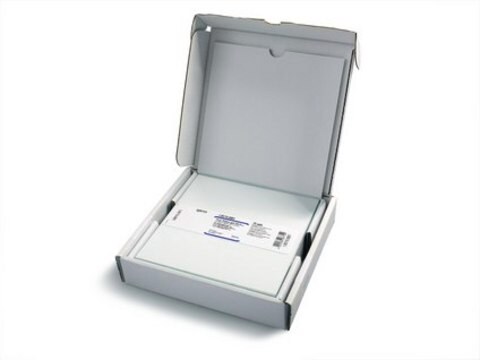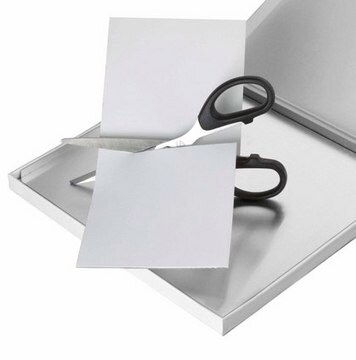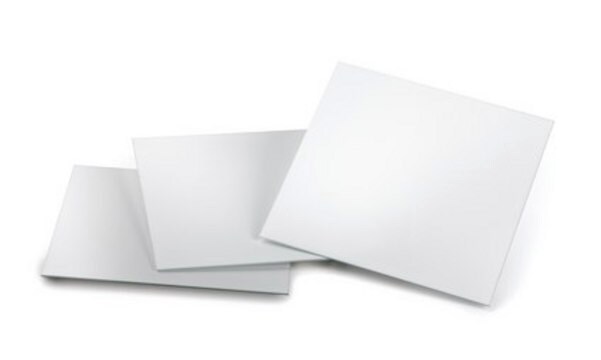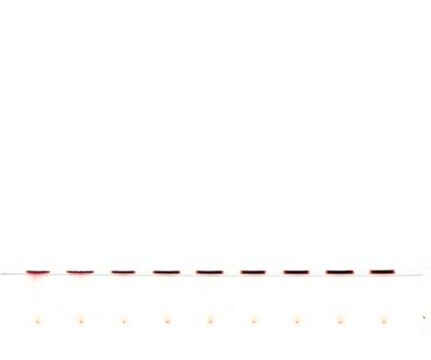1.05642
HPTLC plates, Silica gel 60 F₂₅₄
pkg of 50 plates, plate L × W 20 cm × 10 cm, glass support
Synonym(s):
HPTLC Silica Gel Plates
About This Item
Recommended Products
material
glass support
silica gel 60 matrix
Quality Level
feature
binder Organic Polymer
fluorescent indicator
packaging
pkg of 50 plates
technique(s)
thin layer chromatography (TLC): suitable
layer thickness
200 μm
plate L × W
20 cm × 10 cm
particle size
5-6 μm
pore size
60 Å medium pore diameter
storage temp.
2-30°C
Related Categories
General description
Application
Linkage
Analysis Note
Pore volume (N₂-isotherm): 0.74 - 0.84 ml/g
d 50 (laser diffraction, size distribution): 5 - 7 µm
Layer thickness: 150 - 200 µm
Deviation of layer thickness per plate: ≤ 35 µm
Chromatographic testings:
A) Colour test
hRf-values
- bleu vif organol, colour test, lipophile:
17 - 22
- Ceres Black G, colour test, lipophile: 38 - 43
- ceres Violet brn, colour test, lipophile: 58 - 64
separation number
- colourtest, lipophile:
≥ 10.0
B) Steroid test
hRf-values
- hydrocortisone, steroid test:
23 - 29
- Reichstein S, steroid test: 36 - 45
- methyltestosterone, steroid test: 43 - 52
separation number
- steroid test:
≥ 10.5
Typical value determined on a conditioned plate
Eluent A) Toluene (45% rel.humidity)
Eluent B) Ethyl acetate/Toluene (95+5 v/v; 20% rel.humidity)
Certificates of Analysis (COA)
Search for Certificates of Analysis (COA) by entering the products Lot/Batch Number. Lot and Batch Numbers can be found on a product’s label following the words ‘Lot’ or ‘Batch’.
Already Own This Product?
Find documentation for the products that you have recently purchased in the Document Library.
Customers Also Viewed
Articles
In this article we present several HPTLC applications and analytical standards for ginsenosides.
HPTLC is an efficient method to determine Steviol Glycosides content in Stevia using our HPTLC plates and reference materials, including a new introduced Stevia extract reference material.
High-Performance Thin-Layer chromatography (HPTLC) quantification of methylglyoxal (MGO) in complex and matrix rich manuka honey offering quick sample preparation, high-matrix tolerance, and high-throughput.
Protocols
HPTLC was used to analyze caffeine in coffee. Filtration of coffee through a PTFE syringe filter was the only sample preparation. Quantitation was conducted with a TLC scanner.
In the present study we demonstrate compliance of silica gel 60 F254 HPTLC plates with USP requirements, and how HPTLC plates are suitable for the Sildenafil citrate-Limit of Imidazole test.
Powdered black pepper was chosen as example for dietary supplements, being a source for pierine. It is tested according to the current United States Pharmacopeia (USP) guidelines using HPTLC and HPLC.
Separation of Caffiene
Our team of scientists has experience in all areas of research including Life Science, Material Science, Chemical Synthesis, Chromatography, Analytical and many others.
Contact Technical Service









